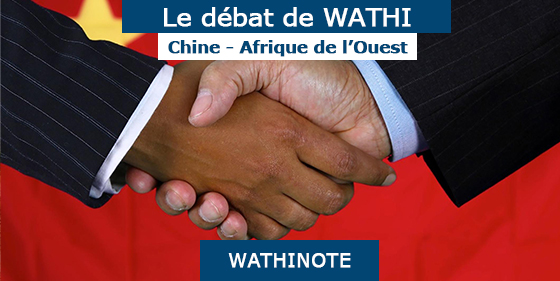

Author: Andrew McGregor
Publication Site: The Africa Report
Publication Type: Article
Date of publication: 19 September 2019
Link for the original document
In 1421, a vast Chinese armada of 3,750 ships set sail on a two-year voyage of discovery. Under Emperor Zhu Di, China was technologically centuries ahead of the rest of the world.
Now, after 500 years of self-imposed isolation, China has been making up for lost time by focusing its investment and trade activities on the African continent.
The case for investment in Africa is very clear. Overall, foreign-direct investment (FDI) to Africa rose by 11% to US$46bn in 2018.
This was supported by resource-seeking inflows, some diversified investments, and a recovery in FDI into South Africa.
After Oceania, Africa showed the second highest increase of FDI in 2018 (followed by the Middle East and Asia), while North America, South America, and Europe all recorded declines in FDI for 2018.
North Africa attracted most of the FDI, followed by West, Central and East Africa.
Southern Africa attracted the least FDI on a net basis after substantial disinvestment from Angola.
This year, the United Nations Conference on Trade and Development (UNCTAD) is predicting 13% growth in FDI, driven by the acceleration of economic growth, progress towards implementation of the African Continental Free Trade Area Agreement, and large greenfield investments.
China’s economic interests in Africa have always been two-pronged: trade and investment. Since 2000, the volume of trade between China and Africa has increased 17-fold. Meanwhile, China’s investment in Africa has increased by more than 100-fold.
Africa needs China, and China needs Africa. China’s investments, trade, foreign aid, loans and grants play a huge role in developing the continent. But in the longer-term, Africa must engage with China in a more integrated manner, pushing for a fairer and more balanced trade, and above all for more local value-addition
Africa’s trade with China grew exponentially after the first Forum on China-Africa Cooperation (FOCAC) in 2000
However, South Africa’s bilateral trade with China makes for interesting reading. It highlights particular nuances that are true for many other African countries.
- The rise of China-South Africa bilateral trade has been significant. China became South Africa’s no.1 trade partner (imports & exports) in 2009, a position that it still holds today.
- The pace of the transformation has been astounding. In 1990, China was South Africa’s no.18 import partner, and only the 34th largest export destination for South African products.
The Record of Understanding, signed with China in 2006, makes it difficult for South Africa to impose anti-dumping tariffs on Chinese imports.
China pledged US$60bn to Africa in loans, export credits and grants at the 7th FOCAC summit in Beijing in September 2018, despite major concerns about Africa’s rising debt and the inability of some countries to repay its loans. This follows a US$60bn pledge at the 2015 summit.
He has promised that China won’t interfere in Africa’s internal affairs, impose its own will, attach political conditions to its African aid programmes, or act out of political self-interest when it comes to investment and financing in Africa.
- China holds 72% of Kenya’s bilateral debt, and 77% of Djibouti’s debt, after completing large projects in both countries.
- Critics say China uses its own labour and material, rather than hiring local contractors and service providers. They also accuse China of delivering sub-standard work and repeated delays on projects.
Africa needs China, and China needs Africa. China’s investments, trade, foreign aid, loans and grants play a huge role in developing the continent. But in the longer-term, Africa must engage with China in a more integrated manner, pushing for a fairer and more balanced trade, and above all for more local value-addition.
Les Wathinotes sont soit des résumés de publications sélectionnées par WATHI, conformes aux résumés originaux, soit des versions modifiées des résumés originaux, soit des extraits choisis par WATHI compte tenu de leur pertinence par rapport au thème du Débat. Lorsque les publications et leurs résumés ne sont disponibles qu’en français ou en anglais, WATHI se charge de la traduction des extraits choisis dans l’autre langue. Toutes les Wathinotes renvoient aux publications originales et intégrales qui ne sont pas hébergées par le site de WATHI, et sont destinées à promouvoir la lecture de ces documents, fruit du travail de recherche d’universitaires et d’experts.
The Wathinotes are either original abstracts of publications selected by WATHI, modified original summaries or publication quotes selected for their relevance for the theme of the Debate. When publications and abstracts are only available either in French or in English, the translation is done by WATHI. All the Wathinotes link to the original and integral publications that are not hosted on the WATHI website. WATHI participates to the promotion of these documents that have been written by university professors and experts
